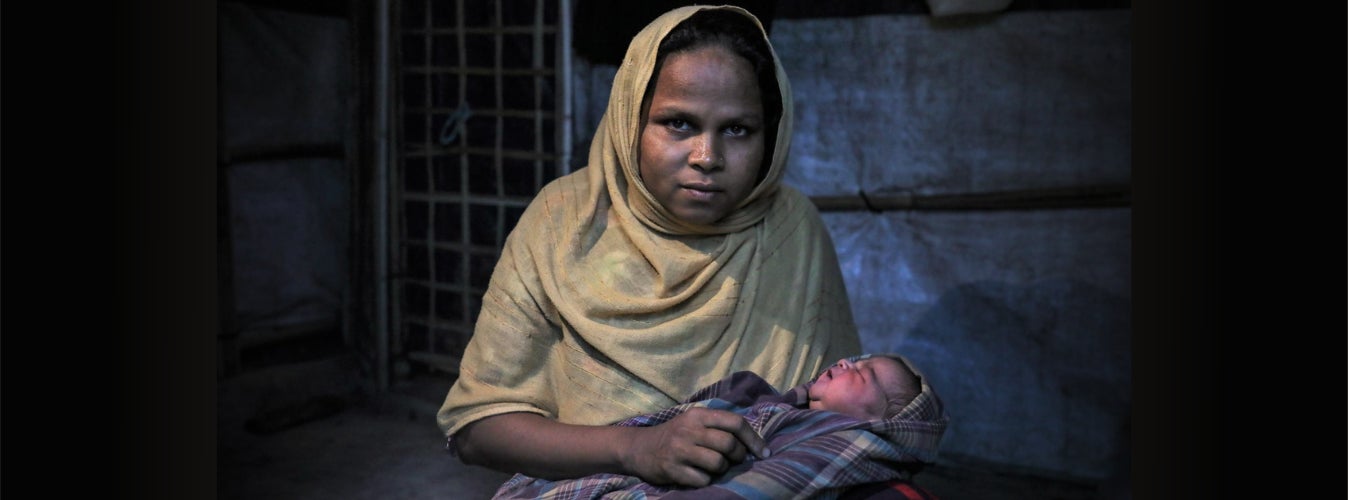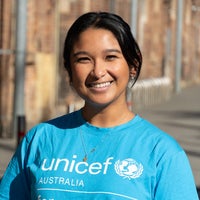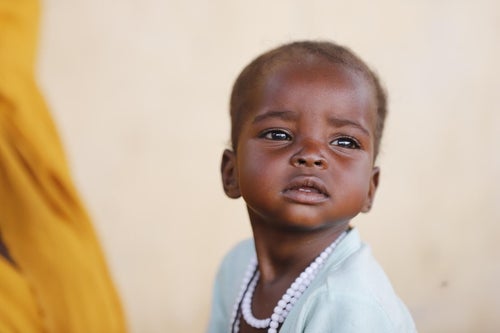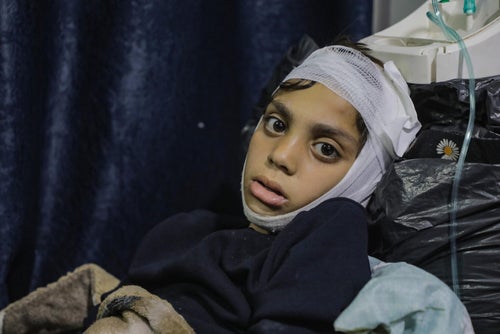Every expectant mother wants to deliver their newborn in a safe environment. For Hasina, a Rohingya refugee living in the densely packed camps in Cox’s Bazar, Bangladesh, her childbirth experience was one no mother could ever imagine.
Only a day before Cyclone Mocha caused destruction on the southeast coast of Bangladesh and Myanmar, Hasina gave birth to her daughter, Hosne Ara. “I have been living with mixed feelings of happiness and anxiety for the last 24 hours," said Hasina.
Going into labour in the middle of an incoming cyclone meant Hasina’s ability to move if needed was limited. The incoming rain and strong winds also meant she could not access medical care easily. It can be challenging to be pregnant or a new mother caring for a newborn at the best of times — in emergencies like this, it gets even harder.
Weathering the storm
Cyclone Mocha posed an alarming threat, with the potential to become one of the most devastating natural disasters to strike Bangladesh and Myanmar in recent years. This threat was particularly dire for the one million Rohingya refugees like Hasina in Cox’s Bazar, living in constant fear of destruction and further deprivation.
The trail of destruction left by Cyclone Mocha – which tore through parts of Bangladesh and Myanmar on 14 May with heavy rains and winds up to 249 kilometres per hour – is causing severe disruption to millions of vulnerable children and families, including many already living in dire conditions. Even as the worst of the storm has passed, the risk of landslides remains high, and further dangers, including waterborne diseases, will likely grow in the days ahead.
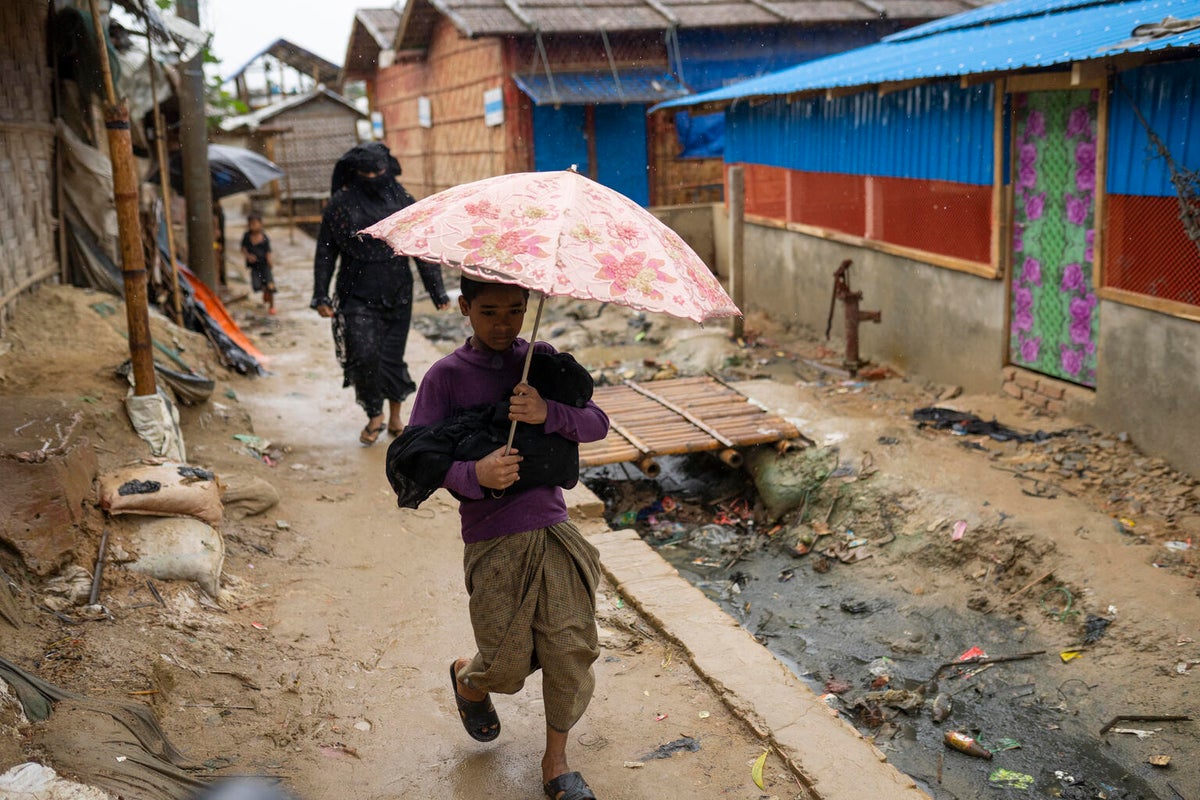
Rob, a Rohingya child from Cox’s Bazar, took his younger sister to a shelter centre before the heavy winds of Cyclone Mocha struck. Initially, his family decided to stay at their hut but when the wind continued and the rain started, they got scared and changed their minds to go to the shelter centre. Rob said, "I have never seen winds like these before. We don't feel safe in the hut. We need to go to the shelter centre."
To Hasina and Rob’s relief, the Rohingya refugee camps in Cox's Bazar were spared the worst but even then, the strong winds and heavy rainfall uprooted trees and damaged hundreds of shelters and facilities.
"UNICEF is on the ground to assess the damage and to rapidly deliver support to children. It is too early to know the full extent of the damage. UNICEF remains fully mobilised."
Always there, for every child
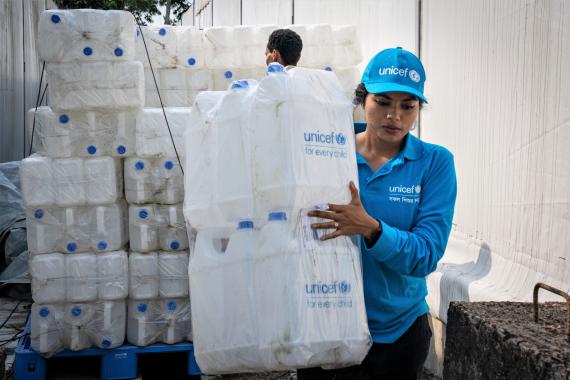
As Cyclone Mocha approached, UNICEF prepared to respond to the urgent needs of refugee kids and families who would bear the brunt of the cyclone’s impact.
UNICEF prepositioned emergency health kits, essential medicines, water purification tablets, loads of water containers, hygiene kits, therapeutic milk, and other crucial supplies.
"Some of the world's most vulnerable children and families are, yet again, at the sharp end of a crisis they didn't create. The areas hit hardest by the storm are home to communities already living through conflict, poverty, instability, and climate and environmental shocks. As we urgently assess and respond to the immediate needs of children in the aftermath of this cyclone, we know with certainty that the best way to save and improve the lives of children and their families is by finding long-term solutions."
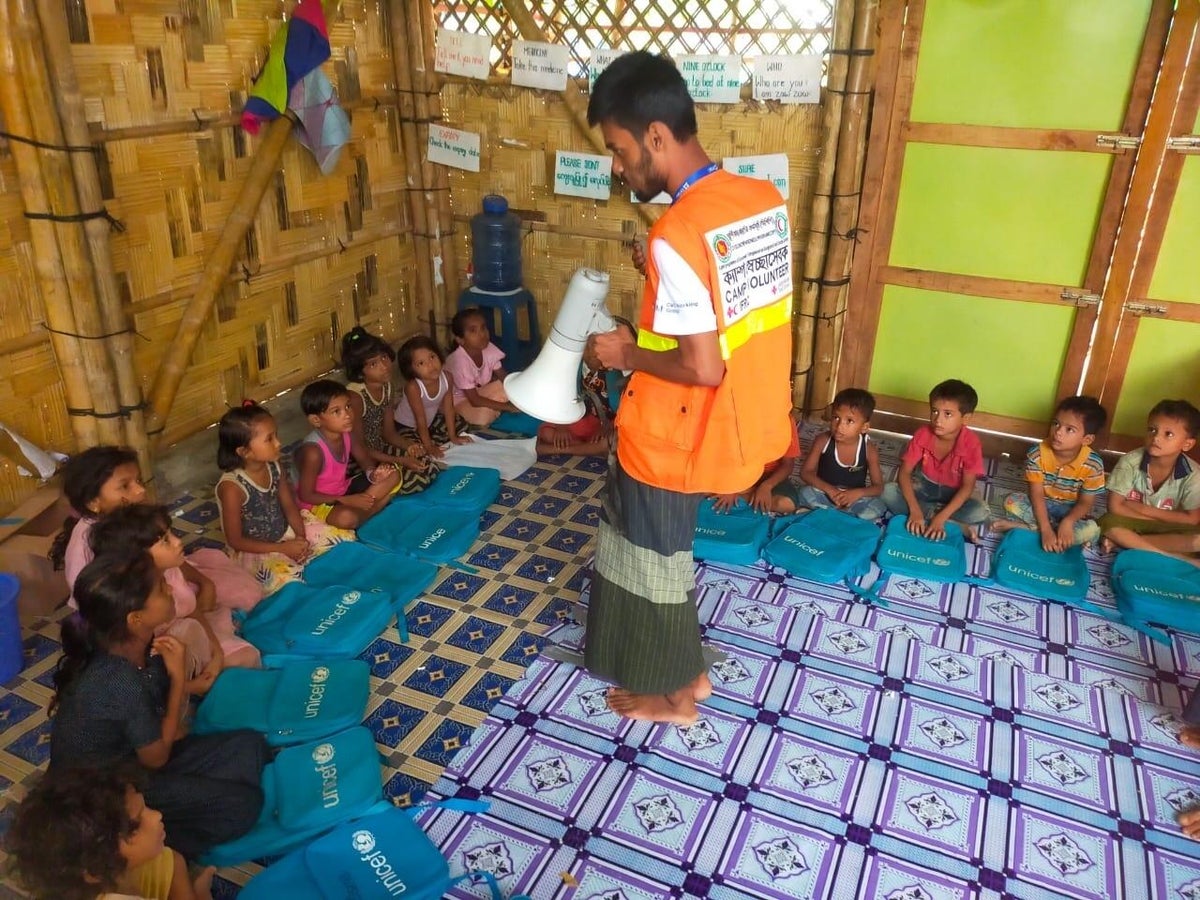
During emergencies, children face increased risks like abuse, violence, exploitation, and getting separated from their families. UNICEF teamed up with the Government of Bangladesh to spread prevention messages, ensuring the kids stayed safe.
In the lead-up to the cyclone's arrival, children in the Rohingya refugee camps could be seen carrying their essentials and seeking safe shelters. Worried parents gathered with their little ones in their makeshift homes, anxiously waiting for the storm to pass.
Now that the worst of the storm has passed, urgent humanitarian access to the affected areas in both countries is critical. UNICEF remains on the ground, assessing needs, providing emergency relief, and delivering supplies with our partners in Bangladesh and Myanmar.
UNICEF is always there for children before, during and after an emergency hits. No matter what.
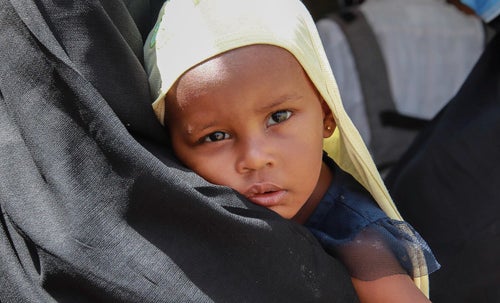
Children in Emergencies
UNICEF is providing urgent assistance to children. But we can’t do it alone. We need your help today.
Related articles
Stay up-to-date on UNICEF's work in Australia and around the world



